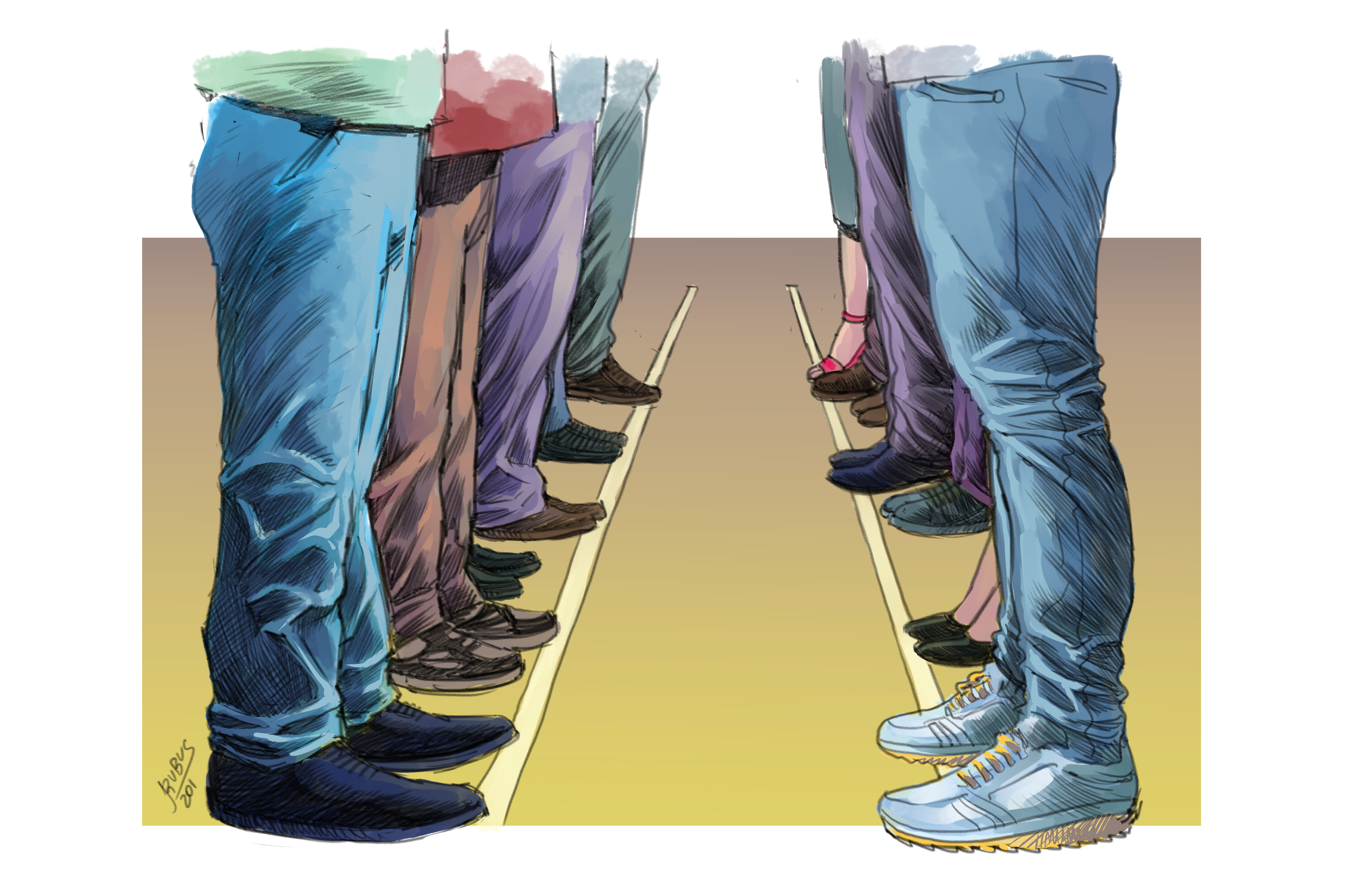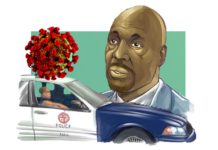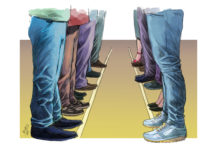On Saturday, June 1, 2019, Defy Ventures held an event called Business Coaching Day at the NationBuilder offices in downtown Los Angeles. As a nonprofit focused on reducing recidivism by supporting currently and formerly incarcerated men to become entrepreneurs, Defy puts on Business Coaching Days to give their participants, known as “Entrepreneurs-in-Training” (or EITs), an opportunity to learn from and be mentored by local executives.
But their June event was unique: It was the first Business Coaching Day held outside prison and therefore primarily aimed to help EITs in transitional housing. There were roughly 10 EITs and about as many mentors, so that all coaching rounds were staged as one-on-one meetings. In between the coaching rounds were more personal exercises and icebreakers. Three Crime Story writers — Shawn Boursiquot, Leland Hall, and Wesley Yiin — attended this event. These are Shawn’s reflections.
It feels similar to the first day of school, the open space packed with strangers who despite my social awkwardness I know I’ll be forced to talk to. The EITs and volunteers take their seats around the room, pairing up for our first exercise. I scan the room, like a child looking for a potential friend, when finally some distance away I see someone I recognize. Someone I can connect to. A Black man.
Trevon is 39 and far from the only Black EIT, but something gravitates me toward him. It doesn’t take me long to discover why. I sit across from him, leaned in and eyes up, ready to engage. Trevon keeps his eyes down. He hands me his resume to review, and as I comb through making my marks, he quietly rubs his goatee and adjusts his glasses. We discuss possible edits, highlighting his work with wildfire rescues, but much of it is sheer politeness. It’s surface-level conversation, both of us just trying to make it to the next round. And after 10 minutes, it’s time to switch.
Following a bathroom break, however, Trevon and I reconnect. I learn, that just like me, this is his first Defy Ventures Coaching day. And just like me, he’s not exactly the most comfortable around people. After a joke or two at our own expense, we find ourselves in a conversation about double consciousness, a term coined by W.E.B Dubois explaining how Blacks inherently alter their behavior in White society as a survival tactic. Of course, neither one of us references the term directly. We don’t have to because for us it’s already understood.
“Can I talk foreal around you?” Trevon asks. I answer “of course,” but he shakes his head as if he doesn’t believe me. He asks me the same question two more times before looking over his shoulder and finally saying: “Man what the fuck is this shit?” He goes on to express how uncomfortable he is in his shirt and tie. How he feels he has to be hyper-aware of his diction. About how he feels he has to get in character and put on a facade. I totally get it. I feel the same in daily interactions with supervisors, professors, and colleagues, anyone who doesn’t match my skin tone. However, I’m quickly humbled. Trevon mentions he’s just reached 100 days out of prison, and suddenly I realize his double consciousness is more embedded in his life than mine. I have the stigma of being Black. Trevon has the stigma of being Black and an ex-con.
For our next exercise, Trevon and I pair up again, but this time he chooses me as his partner. This activity is called “Walk the Line.” EITs and volunteers stand face-to-face on opposite sides of two parallel lines taped across the floor. With every statement read aloud, if we feel it holds true for us personally, we step to the line. If it doesn’t apply to us, we take a step back. The prompts are simple at first, more so ice breakers such as “I like Hip Hop” or “I was born in LA.” Things take a turn, however, when the proctor reads: “I feel nervous about being vulnerable in this exercise.” Trevon and I both step to the line. We share a laugh, knowing vulnerability isn’t something we show willingly. Other prompts we both step to the line for are; “I’m a natural born hustler.” “Violence took place in my household.” “I regularly feel judged.” We don’t look long in each other’s direction, instead choosing to avert our eyes to anyone or anything around us. Soon enough though, Trevon is the only one stepping forward. These statements allude to his single-parent household, to the gangbanging in his neighborhood, to his family history of drugs and alcohol. Yet the prompt that sticks with me the most is: “I was arrested by the age of 16.”
This weighs on me, though it’s far from surprising. The criminal justice system historically gets their paws on Black and Brown people at early ages. They’re essentially in cell blocks by the time they’re in homerooms. Yet what’s in front of me now is not a sheet of statistics, or a book, or a documentary. In front of me is Trevon, another human being. We make the slightest bit of eye contact, exchanging the subtlest of nods for positive support. But as I watch him, my mind reminisces on my past. I think about my family’s financial struggles, though I recognize that I’m blessed to have grown up with both parents. I think about how fortunate I am to have gotten away with petty crimes in my youth. I think about how one misstep could’ve led me onto a similar path as Trevon, but by the grace of God, I’m on the other side of this line.
“I could use a hug right now,” is one of the last prompts read. Trevon and I both reach for a handshake. It isn’t until we see others hugging that we decide to give in. “I’ll hug you, bro,” is the extent of sentimental words we exchange, but the embrace speaks for itself. And with a pat on the back, we step back, this time both with smiles and unflinching gazes.
As people exit the building at the end of the day, Trevon and I stand in front of a large window overlooking downtown LA. He tells me about his business goals: to get into car detailing with a warehouse large enough to hold dozens of trucks at one time. I tell him about my writing aspirations. He raves about his girlfriend, saying she’s his biggest support system. I mention my mother. And in a conversation where the twists and turns feel like two buddies catching up, we somehow end up on the topic of self-love and self-forgiveness. These two things, Trevon says, are what he works on every day. His words resonate with me and inspire me to ask him for a recorded interview. “Nah,” he simply answers, “Because if I speak, I’m gonna keep it too real.” I nod, laughing to myself, happy to have at least gotten a glimpse of the real Trevon.





